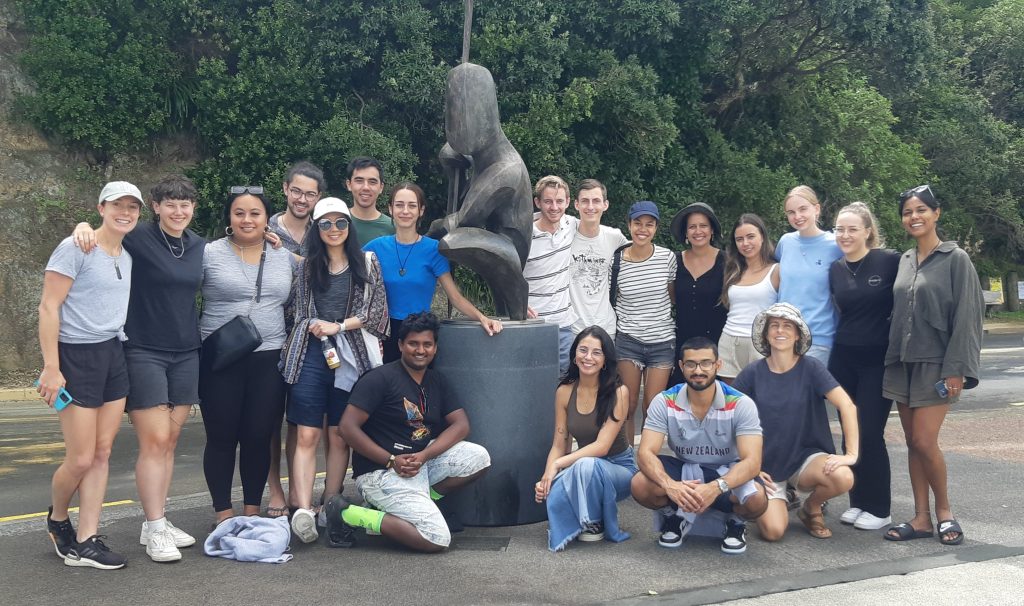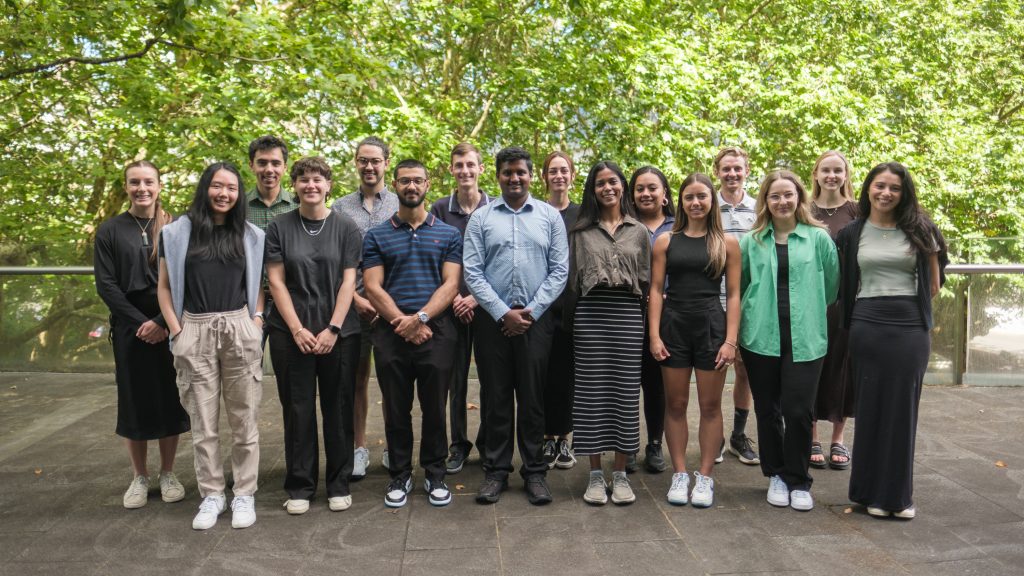The McCall MacBain Foundation provided seed funding in 2017 to launch the Kupe Leadership Scholarships at the University of Auckland. We spoke with former Executive Director Dr. Leny Woolsey to share a bit more information about this first of its kind programme with our community.

- Tell us about the name of the scholarship – Kupe. What does it mean and what does the University of Auckland hope this scholarship will do for its recipients?
The Kupe scholarship programme is named after the legendary ocean navigator, Kupe, who, with his wife Kuramārotini, was the first person to set foot on the land now known as New Zealand, but often referred to as Aotearoa (meaning land of the long white cloud) around 1,000 years ago. Kupe and many other Polynesian navigators used the stars and other environmental stimuli such as waves, birds, currents and weather patterns to explore and ultimately populate the vast Pacific Ocean, or using its original name, Te Moana Nui a Kiwa.
In Aotearoa New Zealand and other Pacific Island nations, there is a strong connection to the ocean and navigation, and there has been a recent surge in restoring traditional values, particularly in young people. Kupe is the perfect representation of the values and capabilities the programme tries to foster in its leadership scholars, as his story exemplifies courage, compassion and connection to the wider world. Through their time in the programme, Kupe scholars begin to understand the mana (deep, abiding respect and honour) required to carry his name.
- How are the values that Kupe represents reflected in its selection process? How are Kupe Scholars selected and how are Kupe cohorts designed?
When selecting scholars, the selection panel looks for those values exemplified in the legend of Kupe: First, Kupe scholars demonstrate courage in facing the unknown, counter-balanced by a humility and acceptance of the powers affecting their environment – over the programme the team often sees this develop into a wisdom around how to constructively navigate adversity. Secondly, Kupe scholars show commitment to service and collective action – Kupe was a pioneer, but he did not act in isolation – he and his crew were voyaging to find a new home in which their people would thrive. Working to strengthen the skills they already have in order to continually benefit their communities is a hallmark of a Kupe scholar.
Each cohort of scholars is selected not only on individual merit, but also collective fit, meaning that diversity in all its forms is important. The programme has scholars working on highly technical solutions for biodiversity loss, youth mental health frameworks, aspects of the built environment, green finance, ethical fashion supply chains, food rescue and security systems, the role of AI in entrepreneurship, and many more areas of study. A huge part of the Scholarship value is spending time with other highly motivated individuals who may have very different passions and experiences. The programme design, therefore, very intentionally includes as many examples of real-world leadership as possible, both to extend those who already resonate in a certain area, but also to expose those who have never had the opportunity to participate in that context. Architects learn what leadership looks like to teachers, doctors learn from musicians, lawyers learn from robotics engineers and so on and vice versa.
- As Kupe Scholars, students take part in a Leadership Development Programme – what are the key components of this programme?
As Kupe scholars are postgraduate students across all faculties and disciplines, the Kupe Leadership Development Program (LDP) is designed to fit around their study commitments. The cohort meets for five immersive workshops across the year which range from a single day through to four days, usually scheduled in semester breaks. These are often residential, taking place outside of Auckland, and focus on meeting with people engaged in addressing specific leadership challenges. For example, for one workshop last year, the cohort met with leaders in the capital, Wellington, to discuss the critical issue referred to as ‘co-governance’ that was playing out at the time in a major national review of our water management system.
The LDP combines theoretical approaches to leadership based on a variety of models with a hands-on, experiential learning pedagogy based on witnessing and taking part in acts of leadership in different contexts. The scholars love this mix of formats and the spaces the programme provides for challenging, yet constructive, conversations with one another. Over the first five years, Kupe has developed partnerships with organisations such as the Auckland City Mission, Pacific Advance Secondary School, Sustainable Coastlines and others that help the team design and situate a programme that will be life changing for these young people, and the communities they serve in their leadership.
The programme has an individual mentoring component and seven additional events scheduled across the year that range from intimate breakfast discussions with business leaders, to highly publicised launch and celebration events. These are supported by a network of individual supporters who generously offer their time and wisdom to uphold the vision of the Scholarship.
- The Kupe Leadership Scholarship includes an orientation. What is the goal of this orientation and why is it such an important part of the Kupe experience?
The orientation for the Kupe Leadership Scholarship forges the deep connections and cohort culture that will sustain the scholars through their year together, and beyond. It is an ‘unplugged’ four-day retreat, located on a marae (community hub and meeting place within Māori culture), typically in Waitangi – a site of historical significance due to our national foundational document, the Treaty of Waitangi, having been created there. During the four days scholars learn about leadership from a Māori perspective and take the time to get to know one another through various experiential exercises, such as a leadership artefact workshop, singing, paddling traditional waka (canoe), weaving, weaponry training and celestial navigation.
Leadership in a small nation with a large minority indigenous population requires inclusivity and partnership. Like many other parts of the world, Aotearoa New Zealand grapples to reconcile its colonial history, so beginning the programme with big questions such as “who are we as a nation?”, helps to ground everything that comes after. Orientation is exactly that: a process of understanding where we are, where we have been, and where we want to go.
The Kupe scholars describe their orientation at Waitangi as enlightening, humbling and galvanising. While they arrive filled with trepidation around the unknowns and formalities of being in such an auspicious place, they leave with their hearts and minds filled with new and old knowledge they can apply back in their day-to-day environments.
- Why is the mentorship component of the programme so important for the leadership journey of a Kupe Scholar?

Every Kupe scholar is matched to a personal mentor, a leader in a specific field, which aligns in some way to the scholar’s interests. While the LDP makes up the ‘core’, the mentoring is an important peripheral activity that compliments the learning process. Scholars are encouraged to meet with their mentor monthly, and to manage that relationship in a responsive way that takes the burden away from the mentor. They are expected to prepare for each meeting thoroughly and follow-up in a professional manner. Often their discussions are focused around content from the most recent, or forthcoming workshop and they provide the scholar with yet another lens to look at a leadership situation. The success of the mentoring programme has been in the selection of mentors with a wide range of backgrounds and experiences, and integration of them into the learning journey (they attend mentor-only events and breakfasts with scholars). Some mentors become lifelong friends. All report an extremely positive experience walking alongside a Kupe scholar for the duration of this very formative year.









